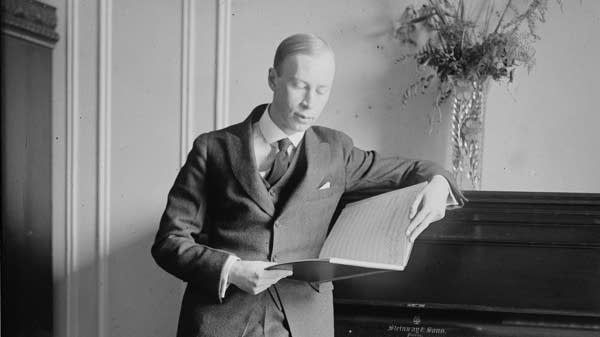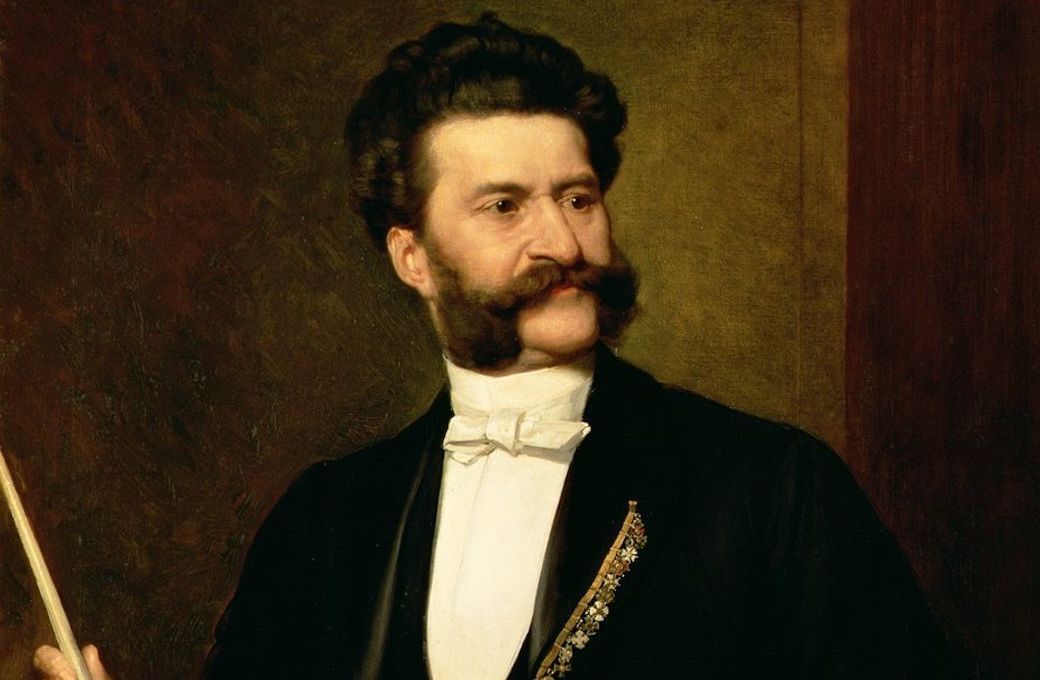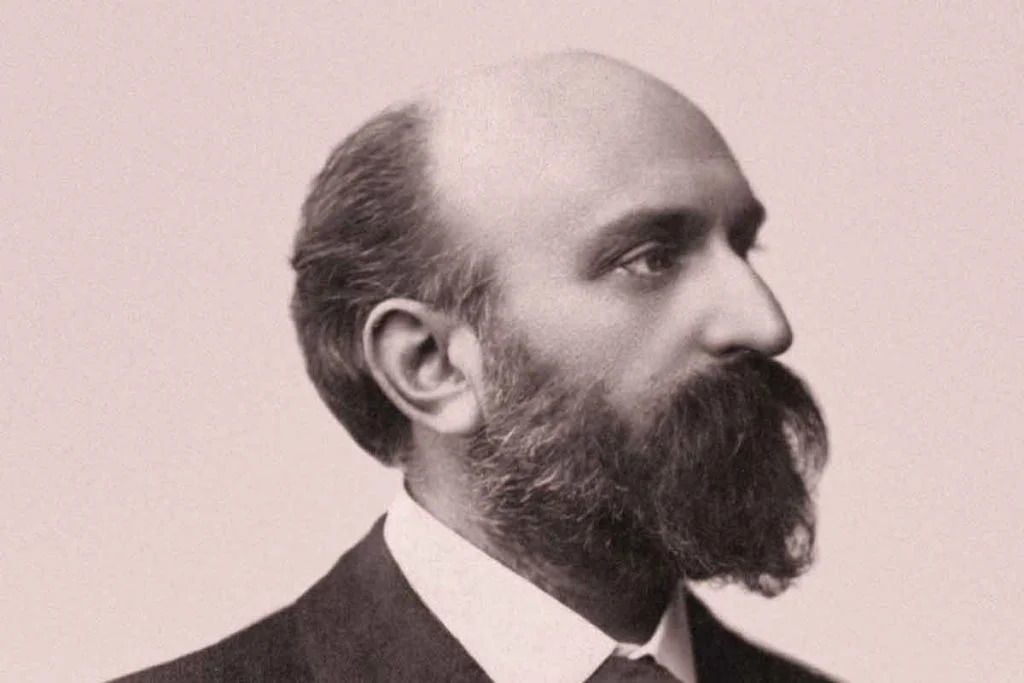THE STORY BEHIND: Vaughan Williams' "Fantasia on a Theme by Thomas Tallis"
Share
On May 10, conductor Robert Spano and the Rhode Island Philharmonic Orchestra will present SPANO CONDUCTS BRAHMS' REQUIEM with Providence Singers, soprano Jessica Rivera and baritone Will Liverman.

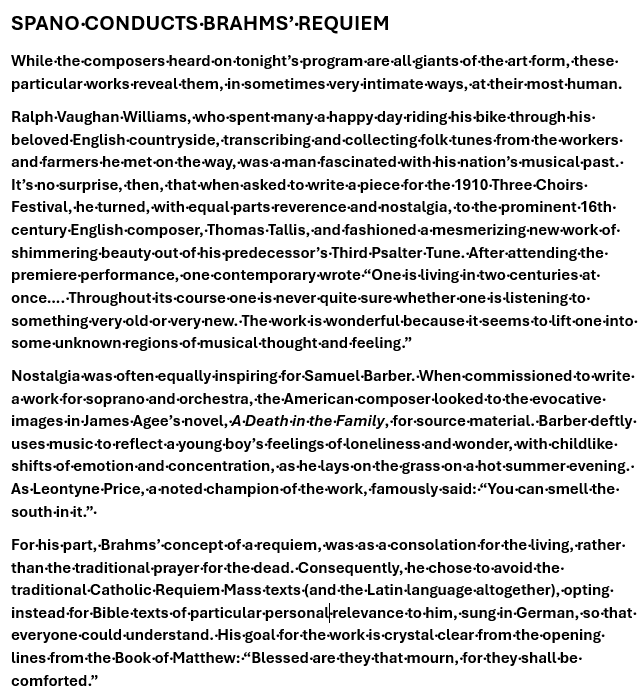
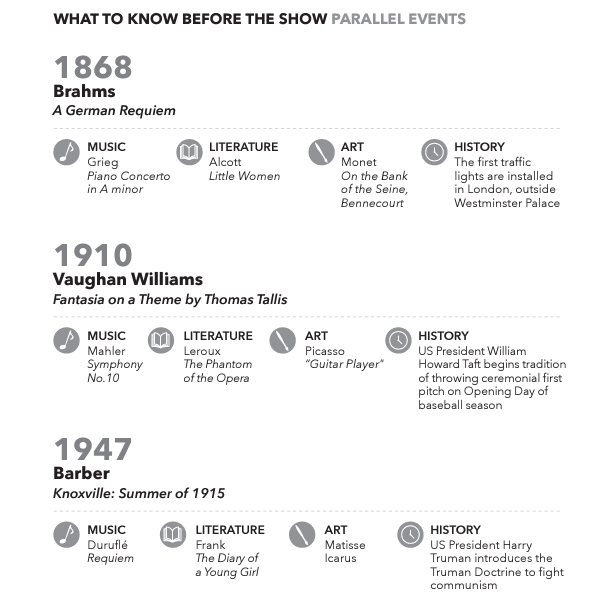
Title: Fantasia on a Theme by Thomas Tallis
Composer: Ralph Vaughan Williams (1872-1958)
Last time performed by the Rhode Island Philharmonic:
Last performed May 21, 2022 with Bramwell Tovey conducting. This piece is scored for string quartet and double string orchestra.
The Story: Arguably Britain’s most prolific and influential composer of the first half of the 20th century, Vaughan Williams was at home in most musical genres. He composed dozens of works that are part of the core repertory of British music of the last century, including nine symphonies.
From his earliest days as a rising composer, Vaughan Williams surrounded himself with great musicians, including Maurice Ravel, Leopold Stokowski, and Gustav Holst. It was with Holst that Vaughan Williams loved to explore the English countryside, tracking down whatever bits of folksong they could find, so as to transcribe them and preserve them for posterity (if you’ve ever been a high school band student in America, you’ve most certainly played his English Folksong Suite). Vaughan Williams also loved the rich tradition of sacred music in England, particularly anything from the Renaissance. This is what led him, early in his career, to pen what would become one of his most beloved compositions: the Fantasia on a Theme by Thomas Tallis. Tallis, one of the most important of English composers of the Tudor era, served under English monarchs from Henry VIII to Elizabeth I. It was the latter who, in 1567, gave Tallis permission to publish a collection of polyphonic settings of Psalm tunes.
Three and a half centuries later, Vaughan Williams chose the third one of these settings as the basis for his own composition. The tune’s original title is simply “Third Mode Melody,” which refers to it being in the Phrygian church mode. Not major, and not minor, but somewhere mysteriously in between. Written for strings, alone, the composer divides the orchestra into three groups of varying sizes, thus providing some interesting textural changes. The main tune is heard several times, but Vaughan Williams freely develops various elements of the melody to create a “fantasy,” which was, in fact, a very common practice in the Renaissance. The resulting blend of Renaissance melodies and harmonies with a 20th-century aesthetic is intriguingly timeless.
Program Notes by Jamie Allen © 2024 ALL RIGHTS RESERVED
Recommended Recordings:
Robert Spano has recorded this piece on Telarc (linked below), and there are also notable recordings with Sir John Barbirolli, Sir Adrian Boult, and Leopold Stokowski (all on EMI/Warner.)
Tickets start at $20! Click HERE or call 401-248-7000 to purchase today!

